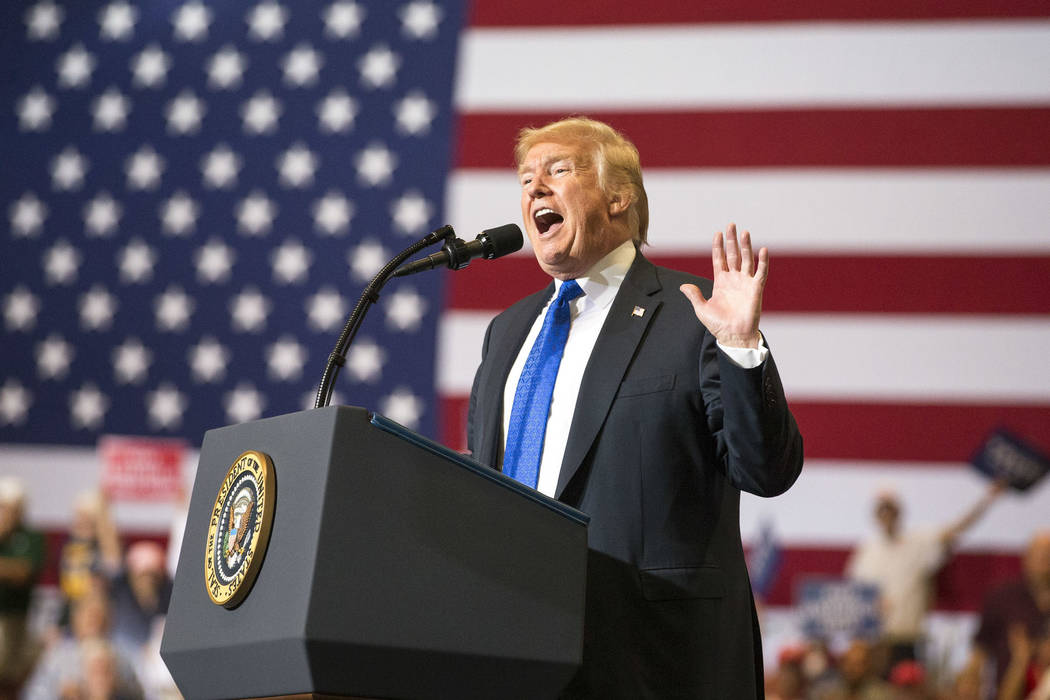Jim Hartman: Trump’s GOP— California and Nevada
The California Republican Party has been pronounced “dead” resulting from the November GOP election tsunami in the Golden State.
“The Grand Old Party is dead—partly because it has failed to separate itself from today’s toxic national brand of Republican politics,” says former Assembly Republican leader Kristin Olsen.
It’s a new low point for a state GOP sorely damaged over the last two decades by the hard-line immigration politics championed by President Donald Trump.
However, the party’s decline has been precipitous since 2010. Republican Arnold Schwarzenegger was governor then and 19 California Republicans were in Congress. In 2010, Republicans nominated two accomplished female high tech executives, Meg Whitman and Carly Fiorina, to make serious bids for governor and senator.
By 2018, the party’s fortunes collapsed. Democrat Jerry Brown was governor. In this election, half the California congressional Republicans were swept from office, leaving only a tiny band of seven Republicans returning to Washington —12 fewer than in 2010. Even in the former Republican stronghold of Orange County, all four House seats switched to Democrats.
Republicans qualified no candidate to oppose Democratic Senator Dianne Feinstein, who was re-elected and the GOP candidate for governor, John Cox, loser of 13 previous runs for office lost again in a 24 percent landslide to Democrat Gavin Newsom.
With Trump’s expected run in 2020, and his historic unpopularity with state voters, this is not rock bottom for the California GOP. Some incumbents barely survived re-election and many more Republican nonpartisan officeholders will be targeted by Democrats.
The “age of Trump” has not been kind to Nevada Republicans either. In 2014, Gov. Brian Sandoval’s landslide re-election coattails swept Nevada Republicans into office. Republicans were elected to all six constitutional offices and three of four Congressional seats went to the GOP. Both houses of the Nevada Legislature had Republican majorities—25-17 in the Assembly and 11-10 in the state Senate.
All was reversed in 2016 and 2018. Led by Trump, defeated by Hillary Clinton in Nevada, the GOP lost two U.S. Senate races, two House seats, the governorship and all constitutional offices except secretary of state. Both state legislative chambers “flipped” to the Democrats, with a “supermajority” of 29-13 in the Assembly and a near miss “supermajority” (13-8) in the state Senate.
With the GOP decimated in two successive election cycles, Nevada’s most noted political commentator, Jon Ralston, has observed Nevada is now a “blue state” and not a key swing state. Ralston would be surprised if Trump even competes here in 2020.
Both Dean Heller and Adam Laxalt lost for Senate and governor by margins greater than predicted, 5 percent and 4 percent. Much is attributable to the political organizing skills and financial resources of the Nevada Democratic Party when matched against a Nevada Republican Party that Ralston dismisses as “a joke—the crucible of ineptitude.”
But, the Nevada Democrats’ victory was not overwhelming. In the seven statewide races, no Democrat polled more than 50.60 percent of the vote.
Far-right candidates prevented Republicans from winning contests for treasurer and attorney general. Wes Duncan lost the AG race by a margin of 4,532 votes (0.47 percent), with 32,259 votes (3.3 percent) going to a fringe right candidate. At 37, Duncan would have given the Nevada GOP a “bench” for the future. Governors Robert List, Richard Bryan, Sandoval and Sen. Catherine Cortez-Masto were first elected AGs.
Sandoval, a Republican, is the most popular Nevada elected official. A “Morning Consult” October survey shows Sandoval leaving office with a 56 percent-23 percent positive approval rating.
However, for Nevada Republicans, it’s now the “party of Trump.”
As a result— color Nevada “blue.”
Jim Hartman is an attorney residing in Genoa, Nevada.

















